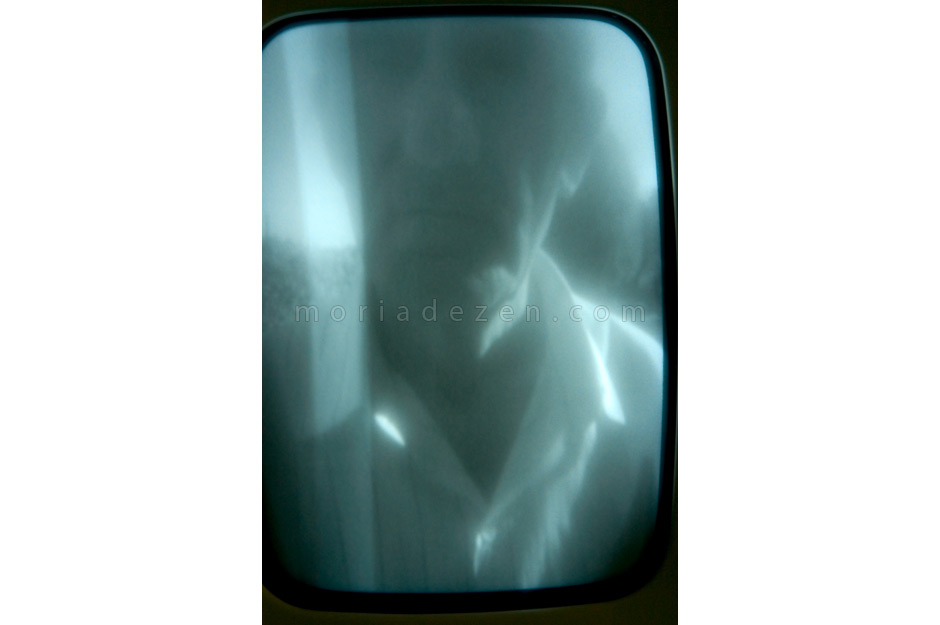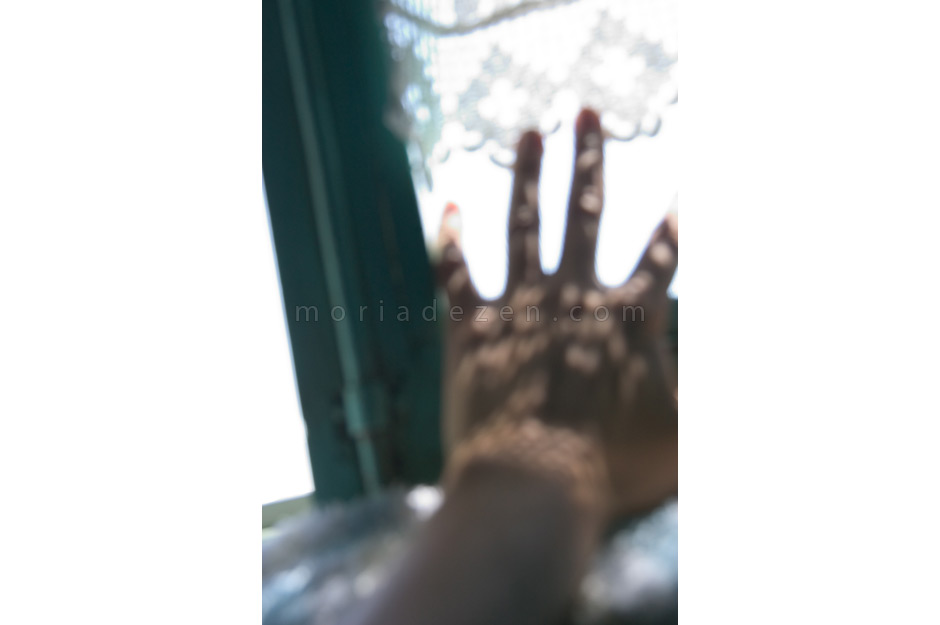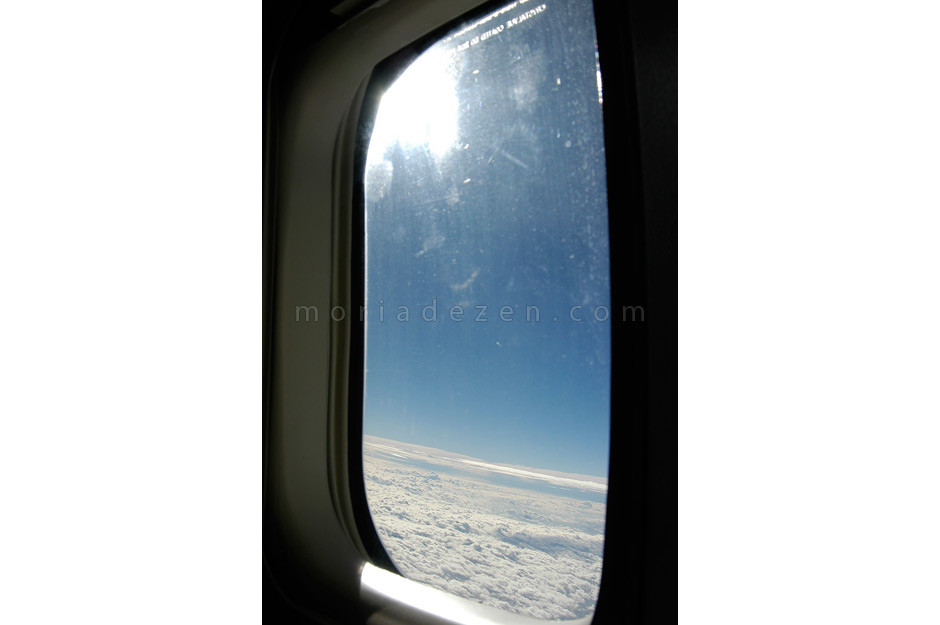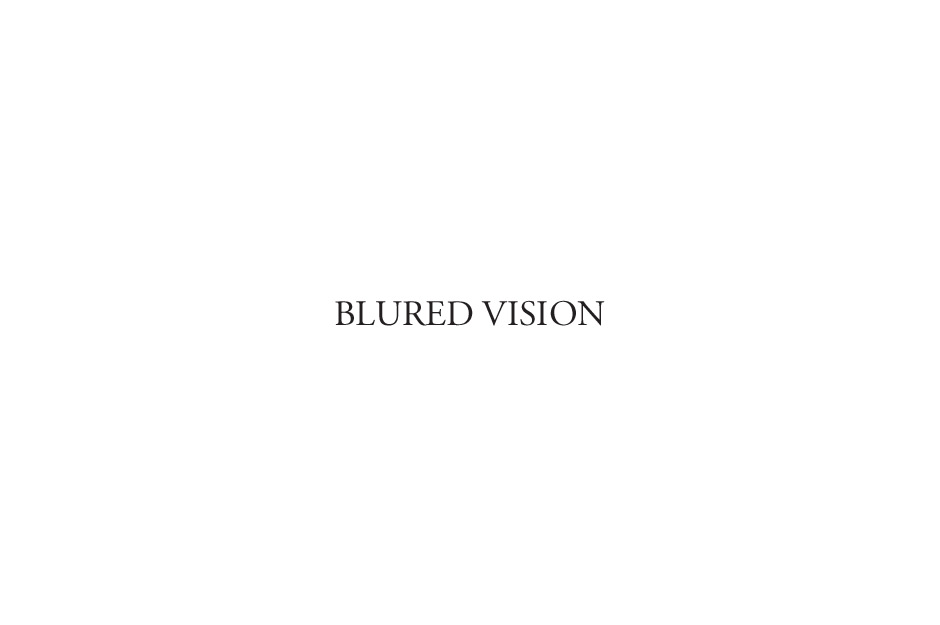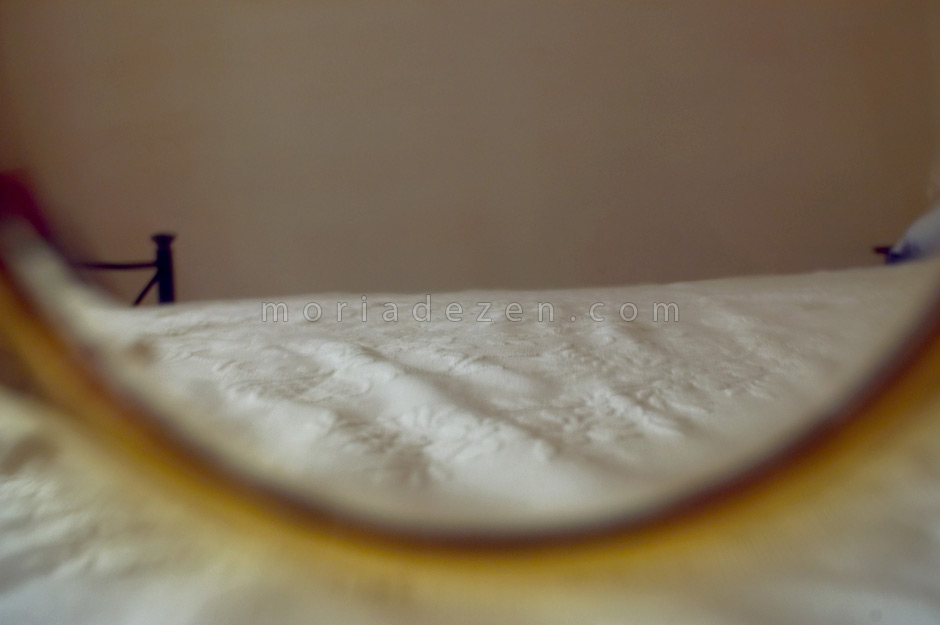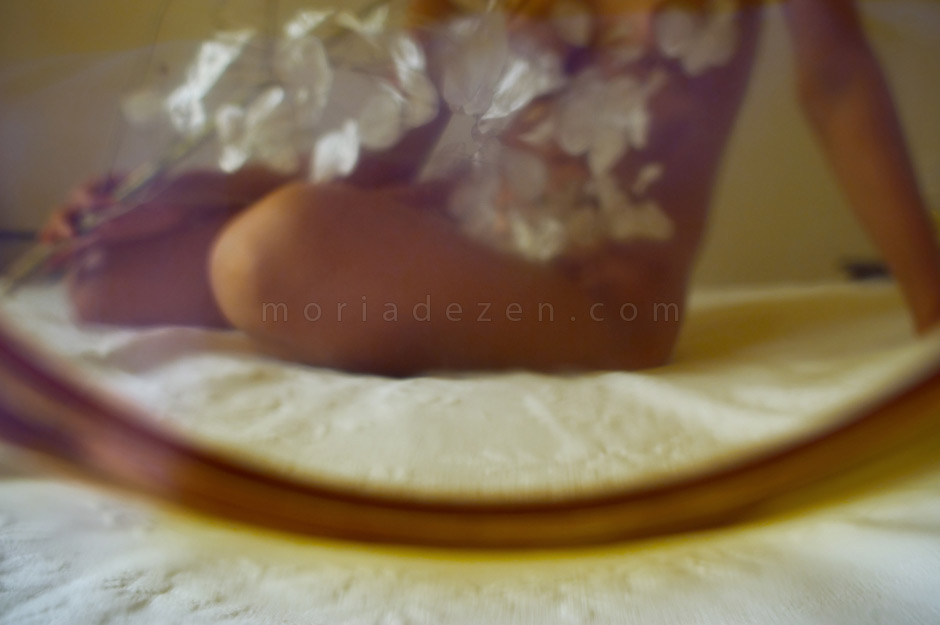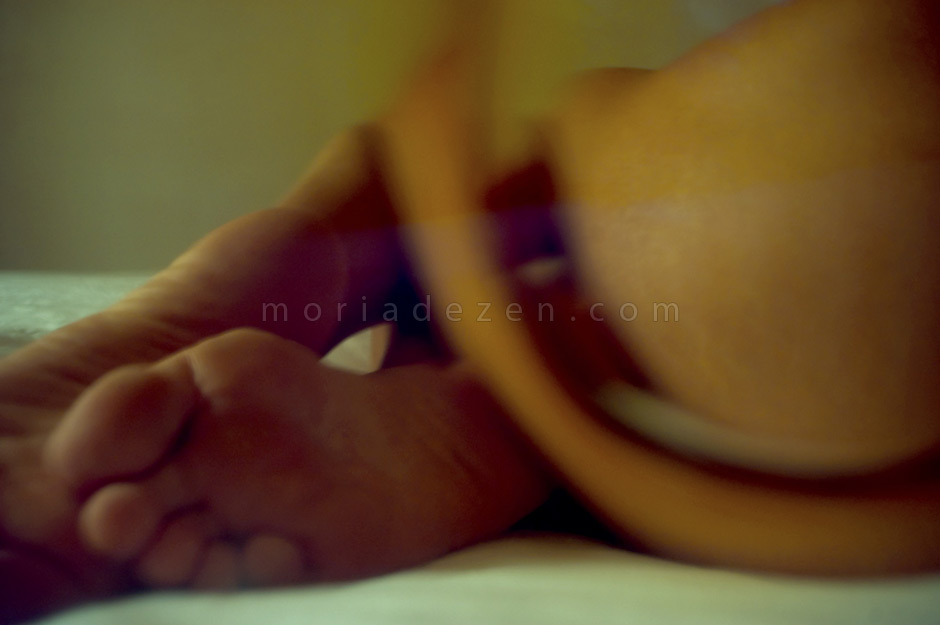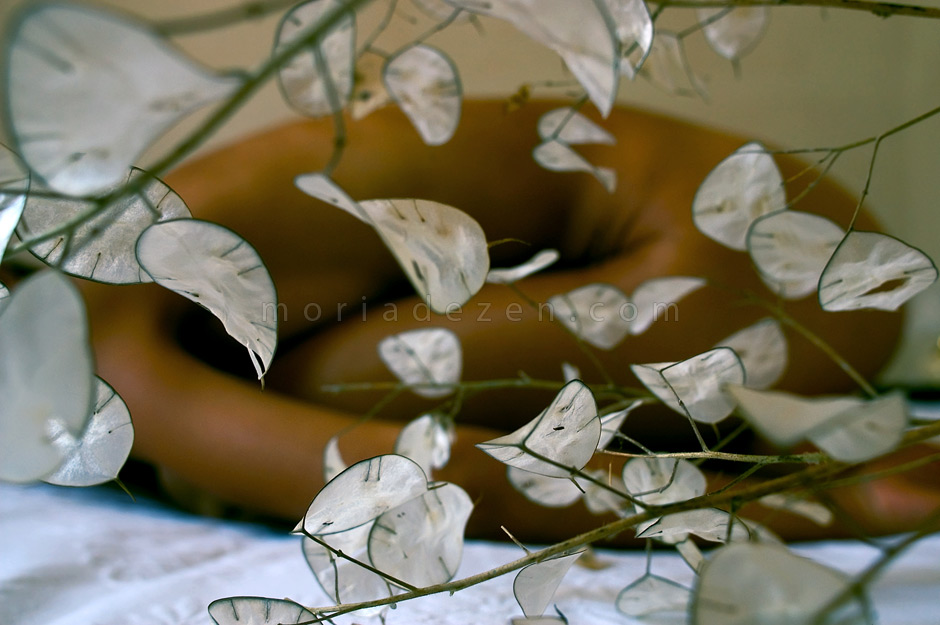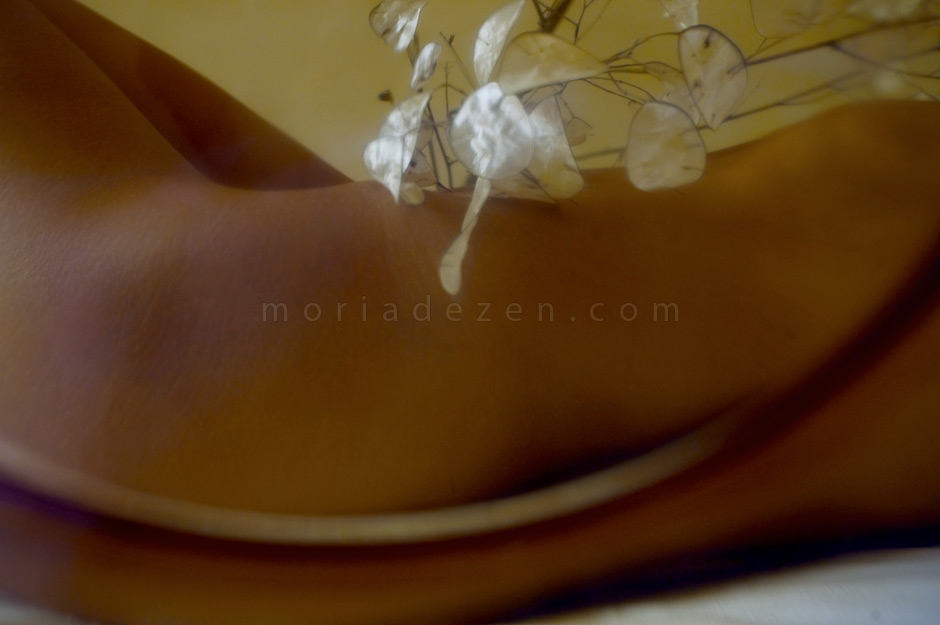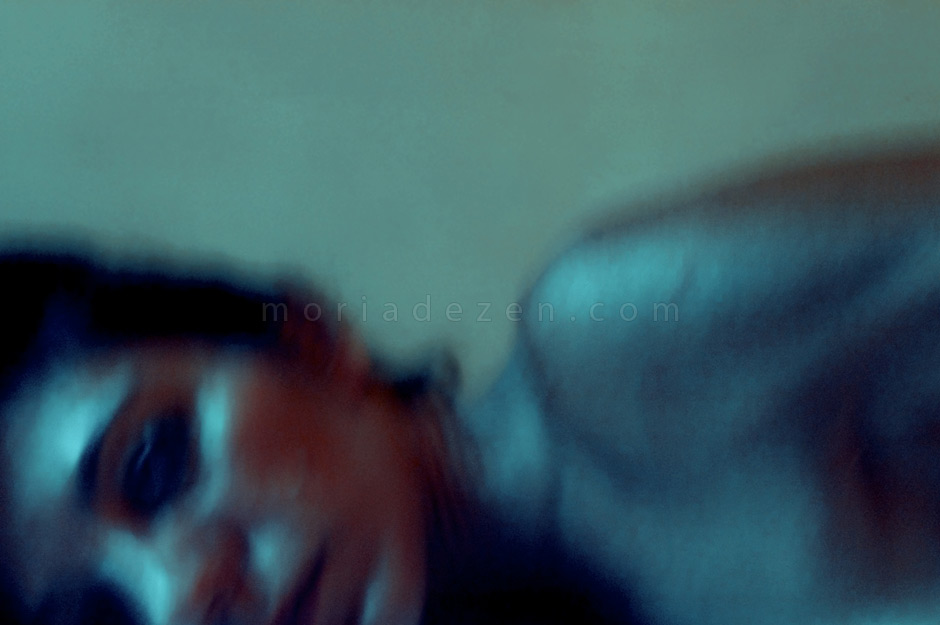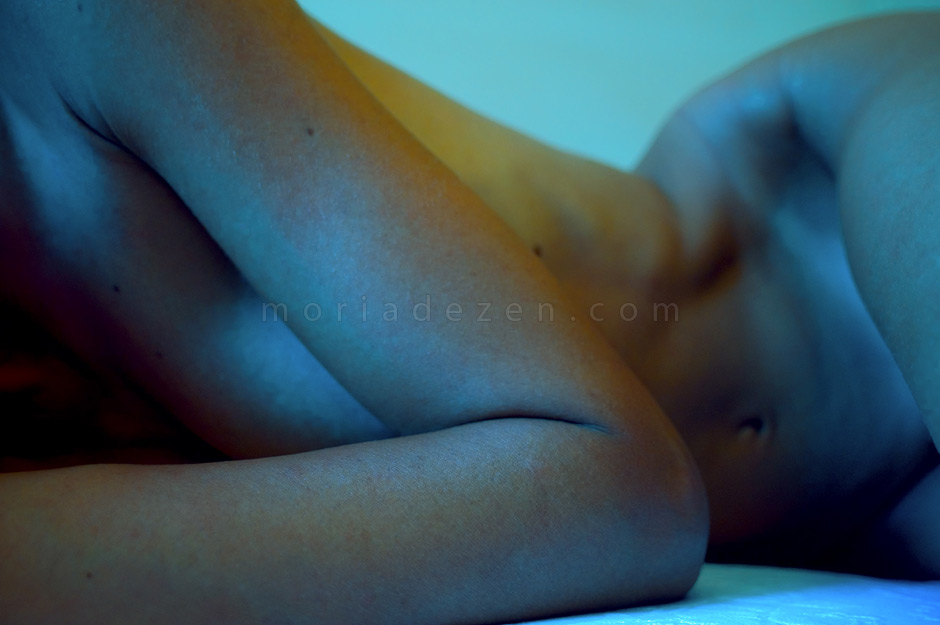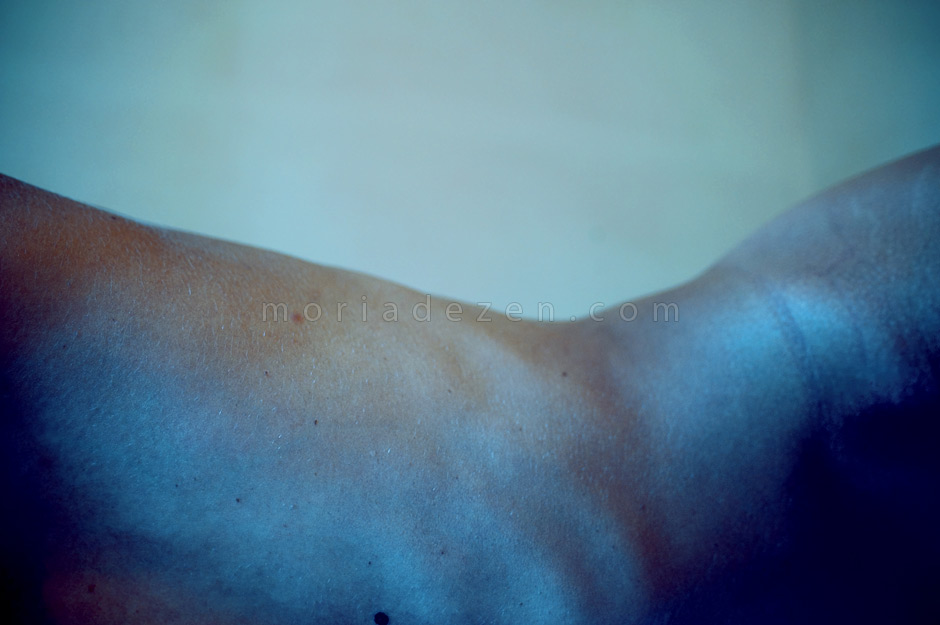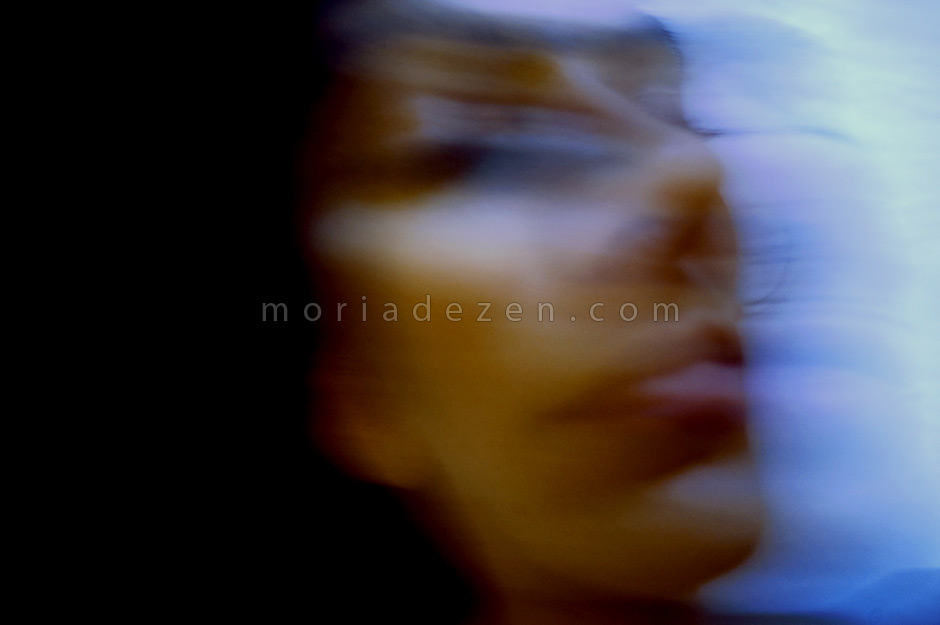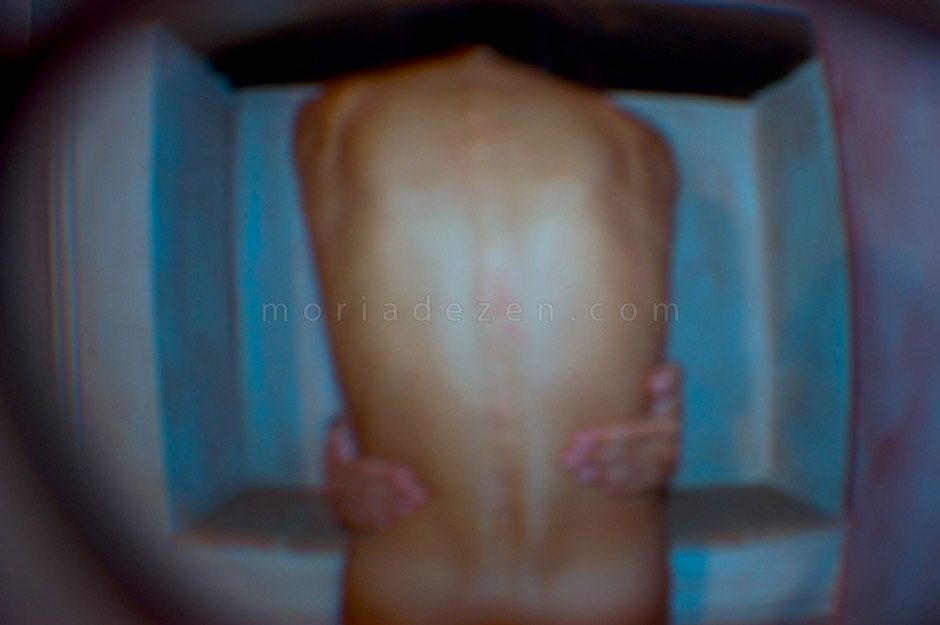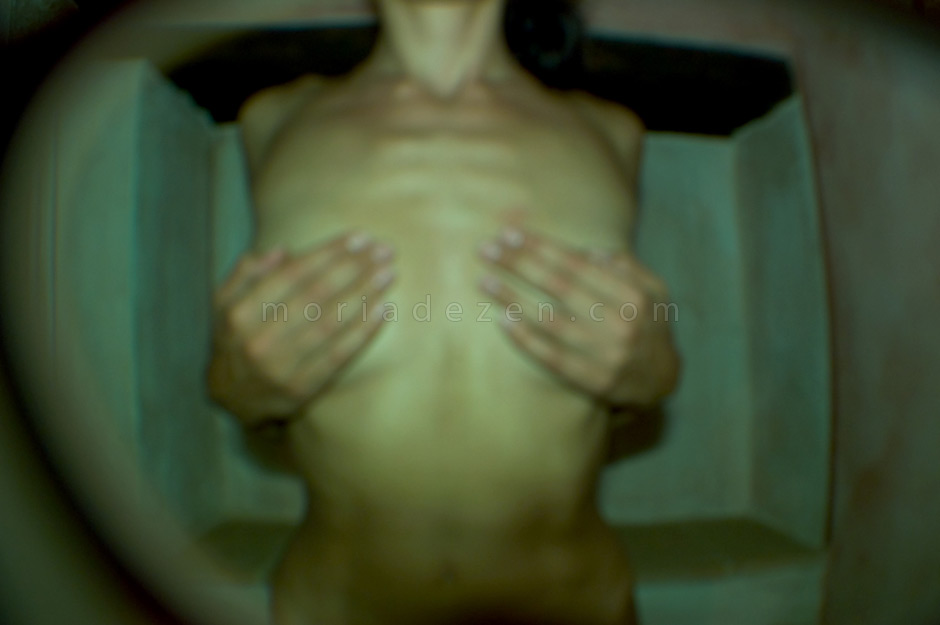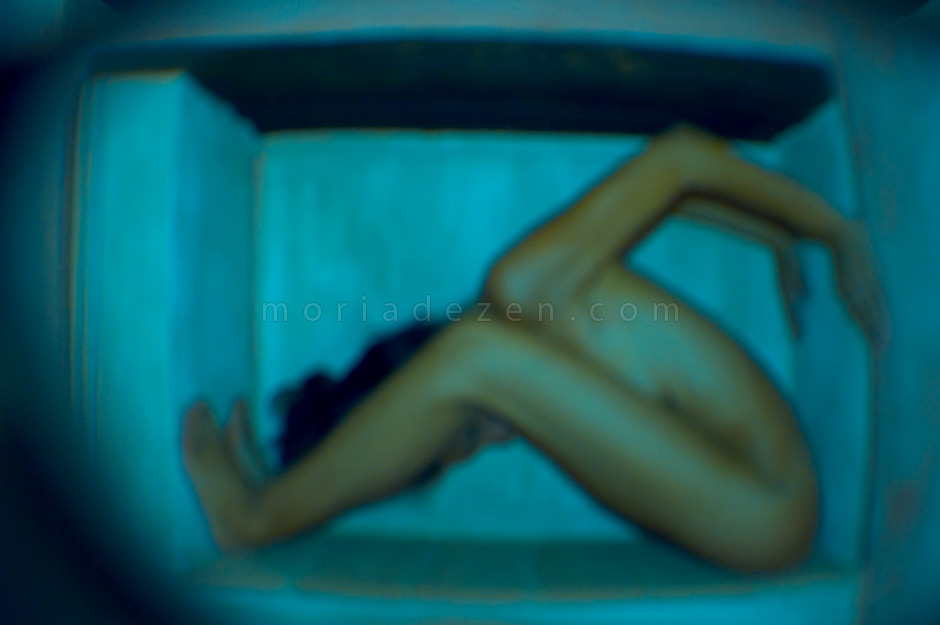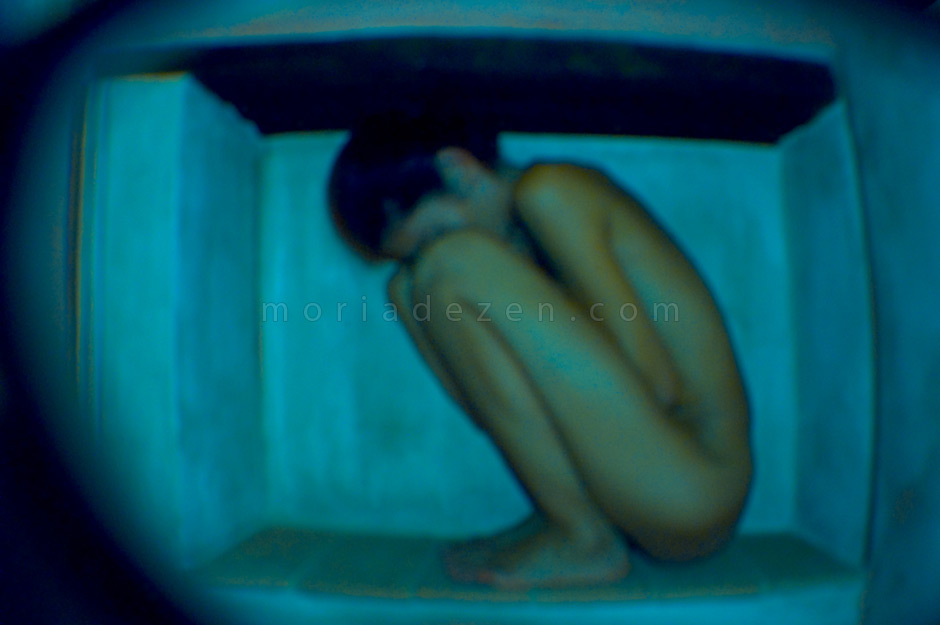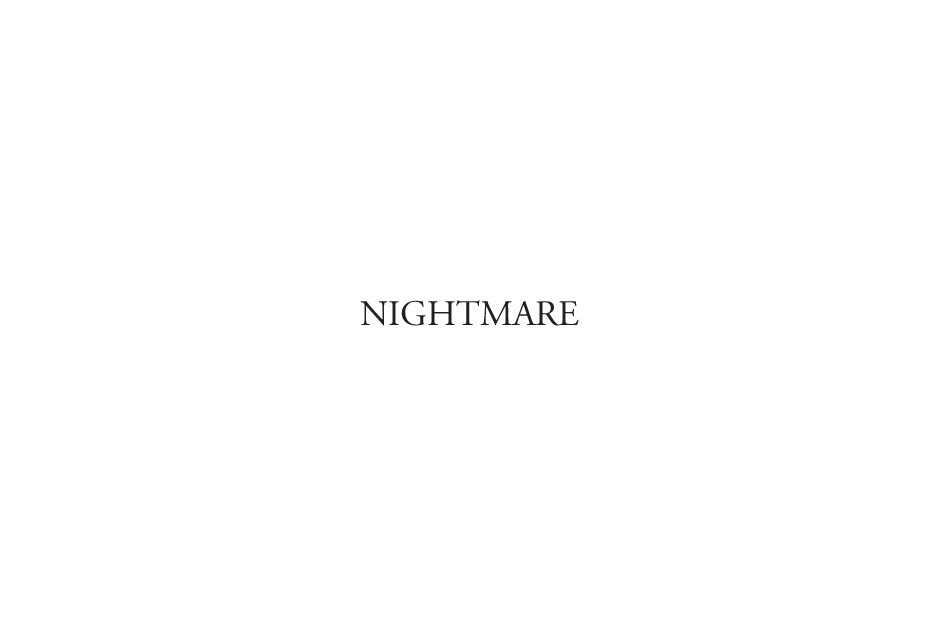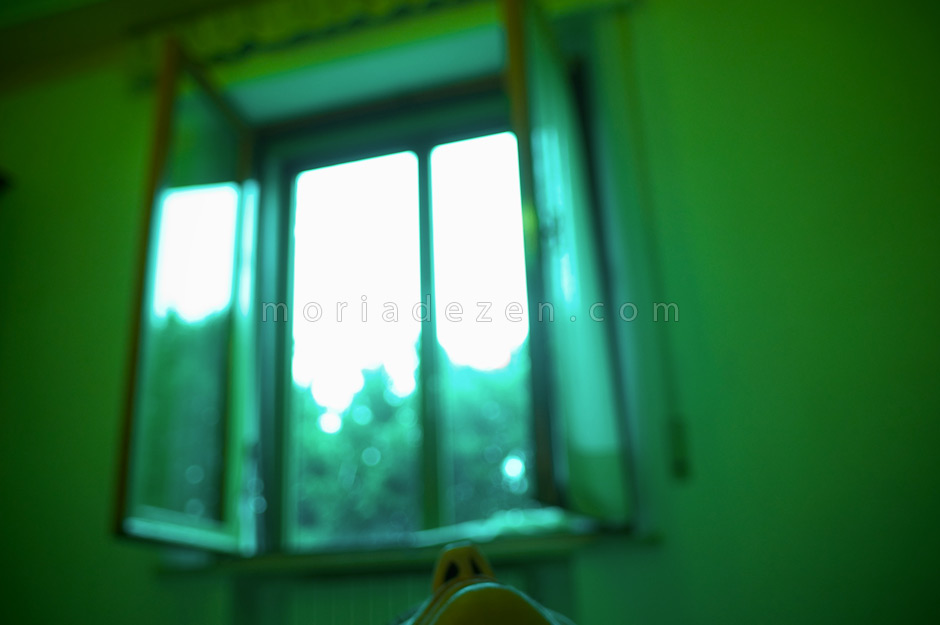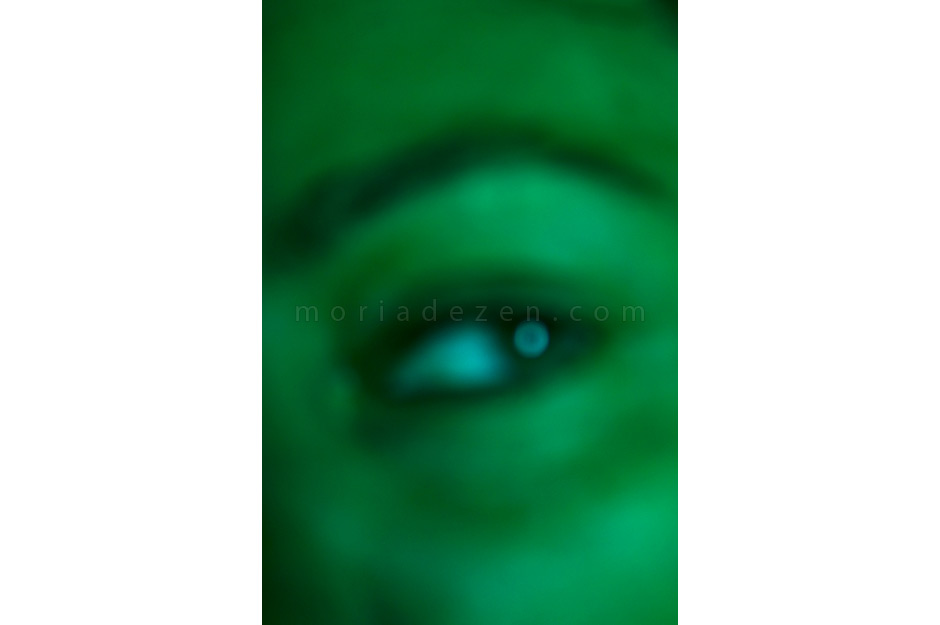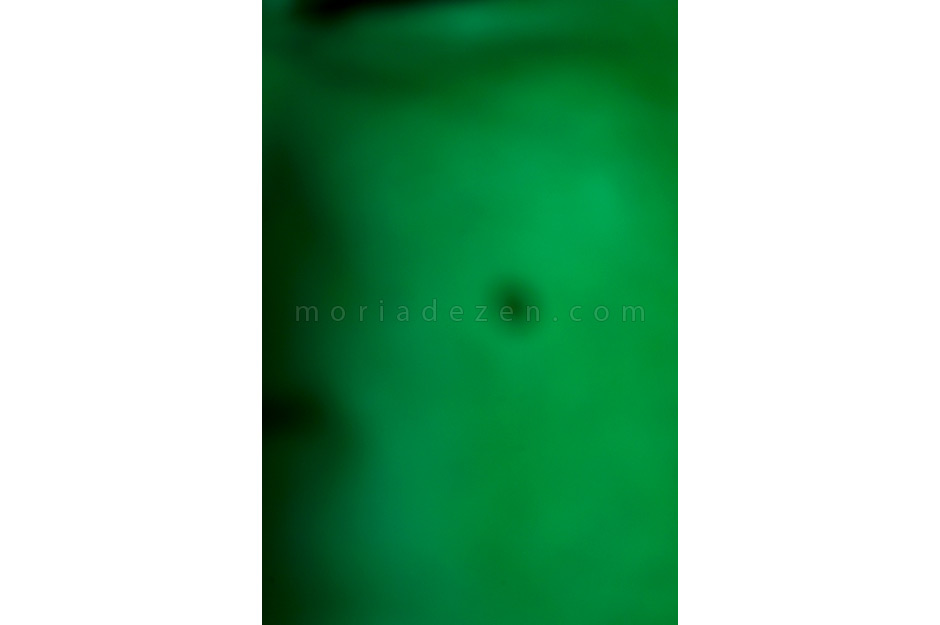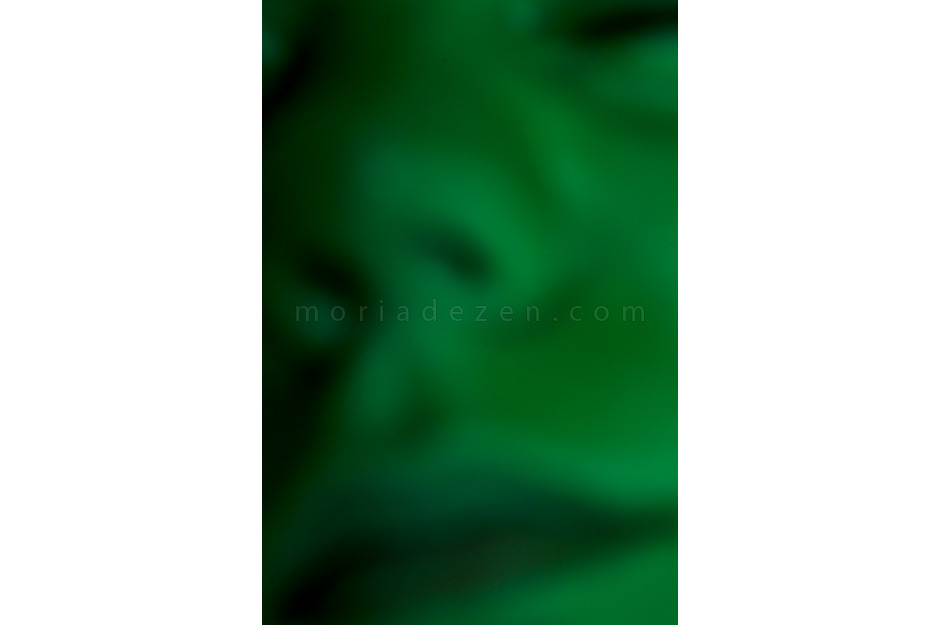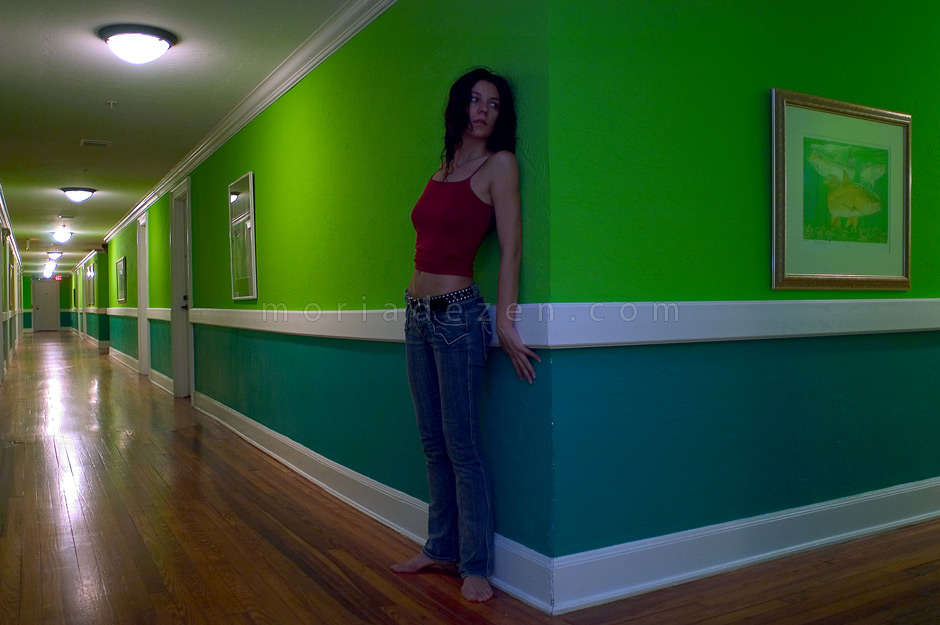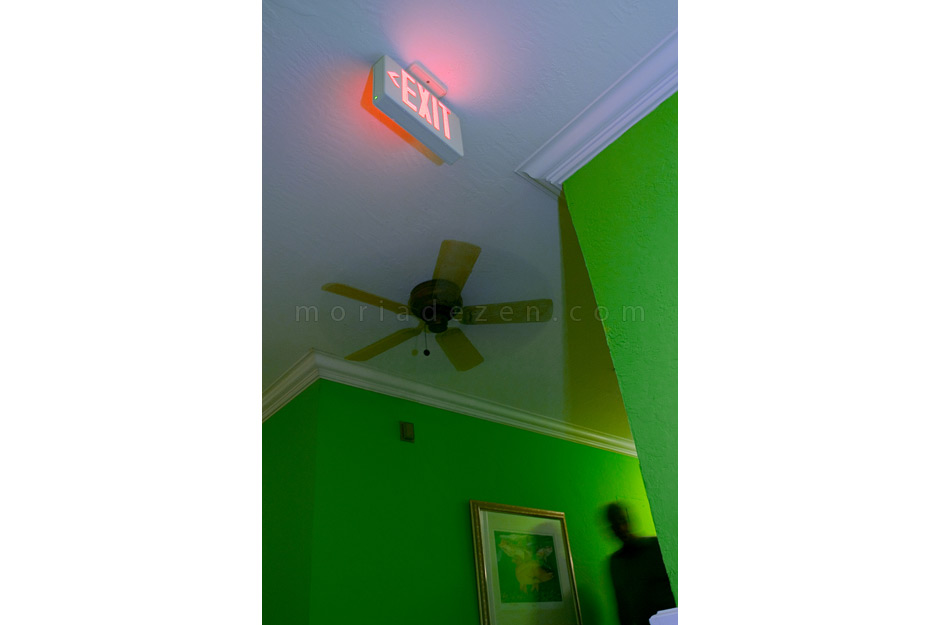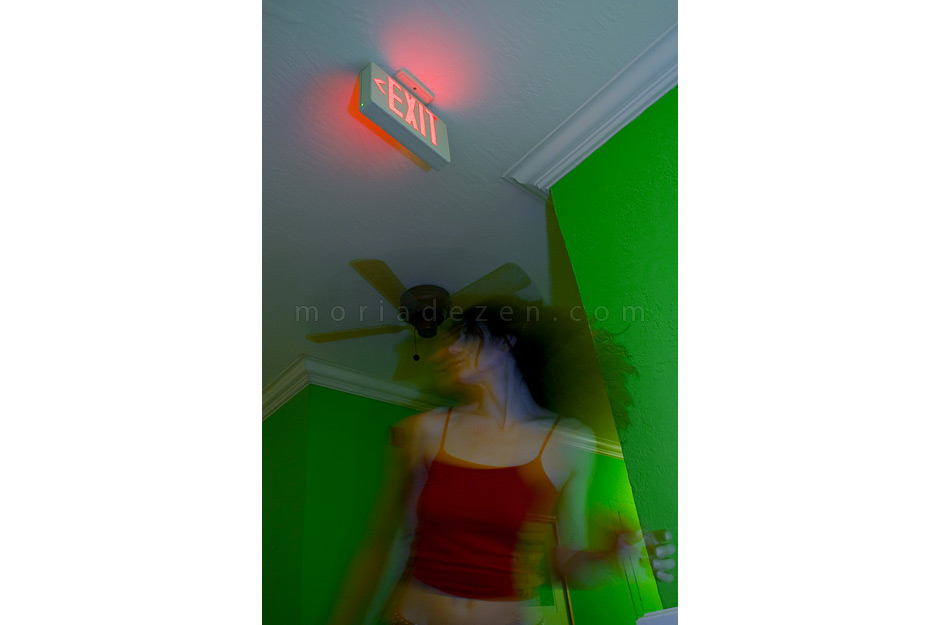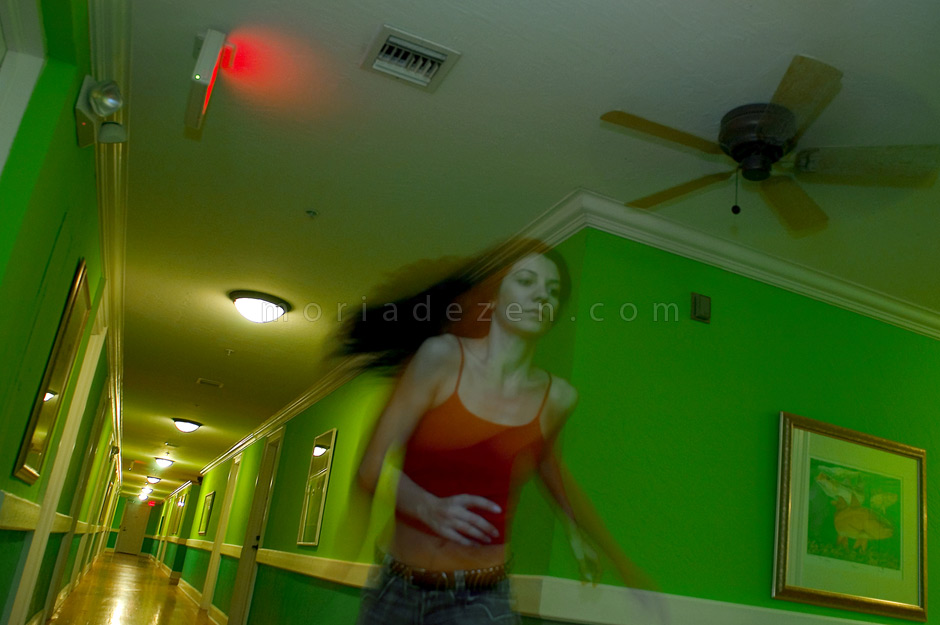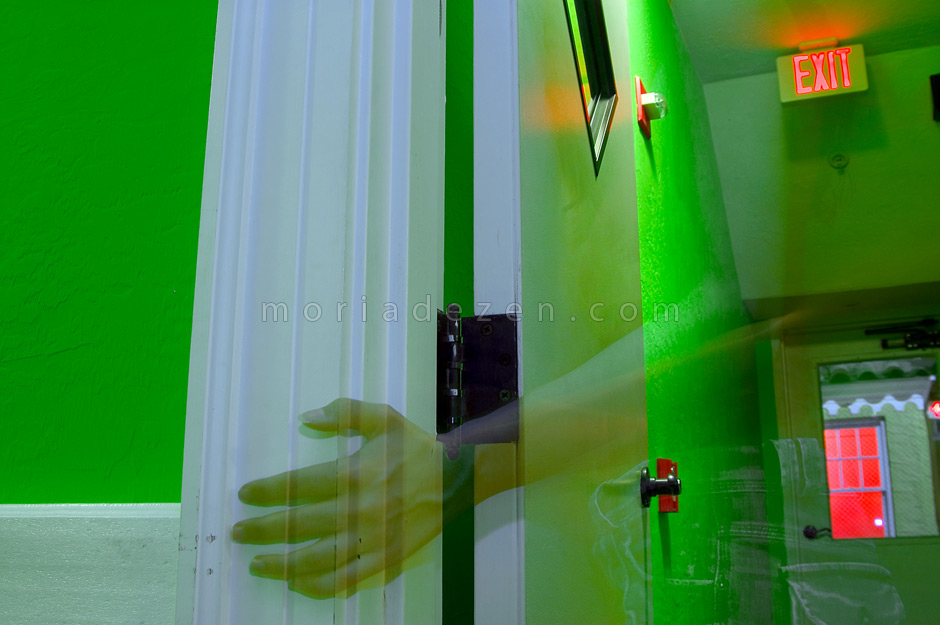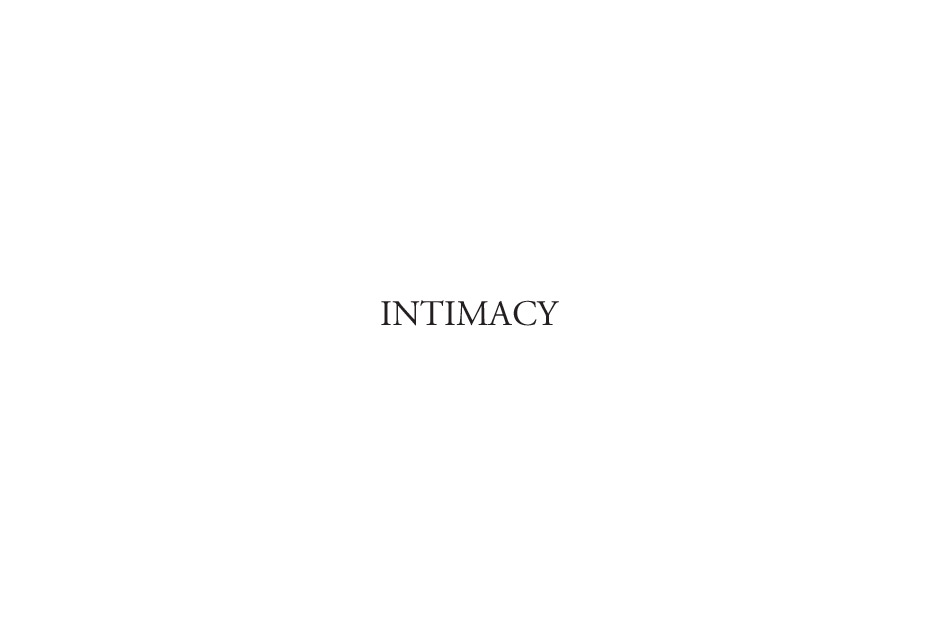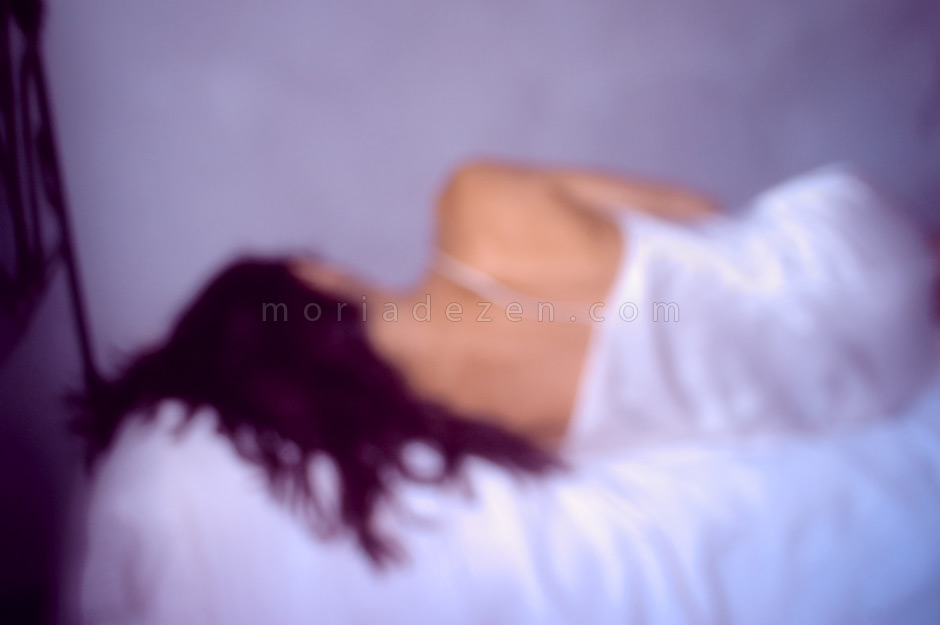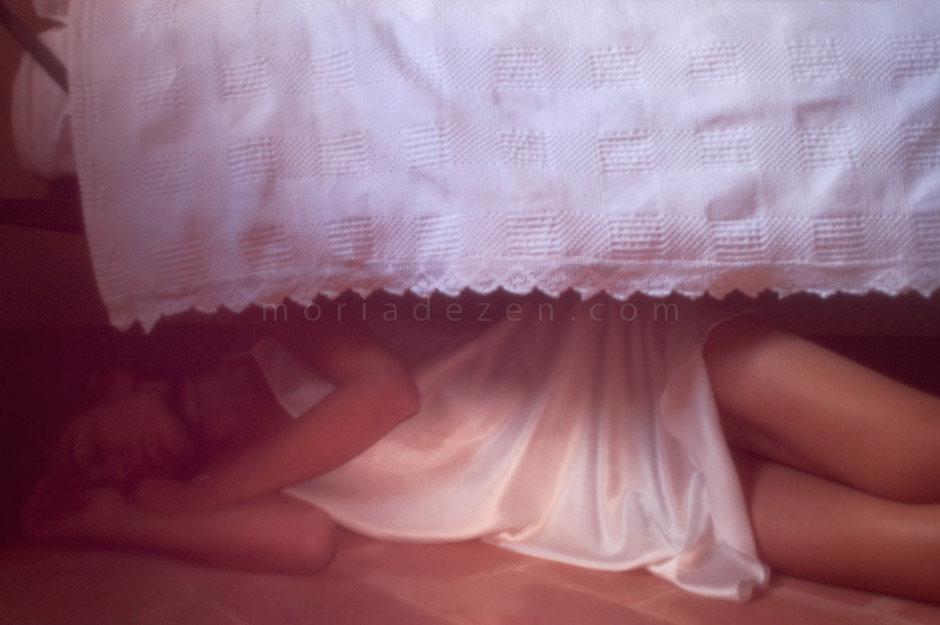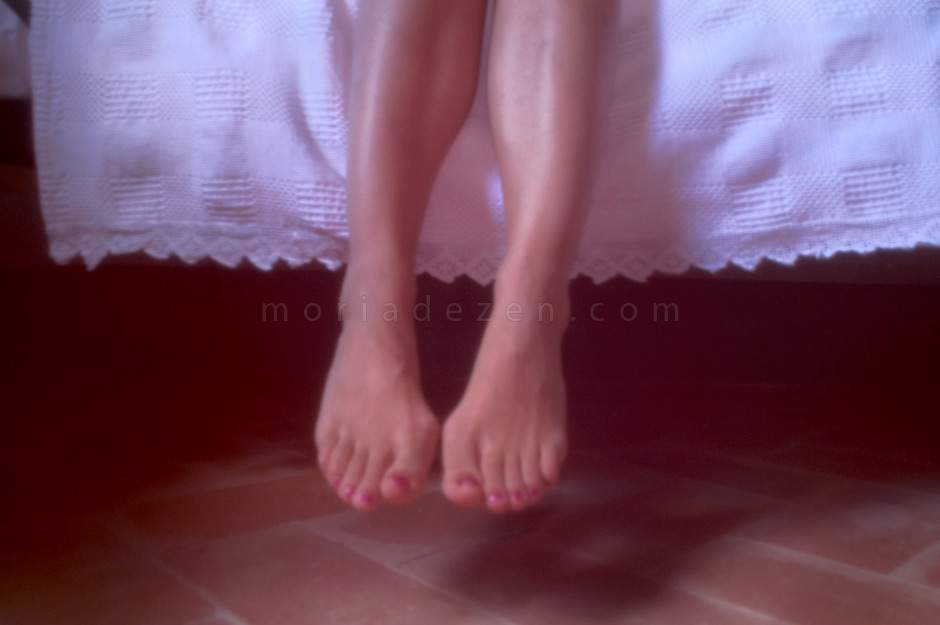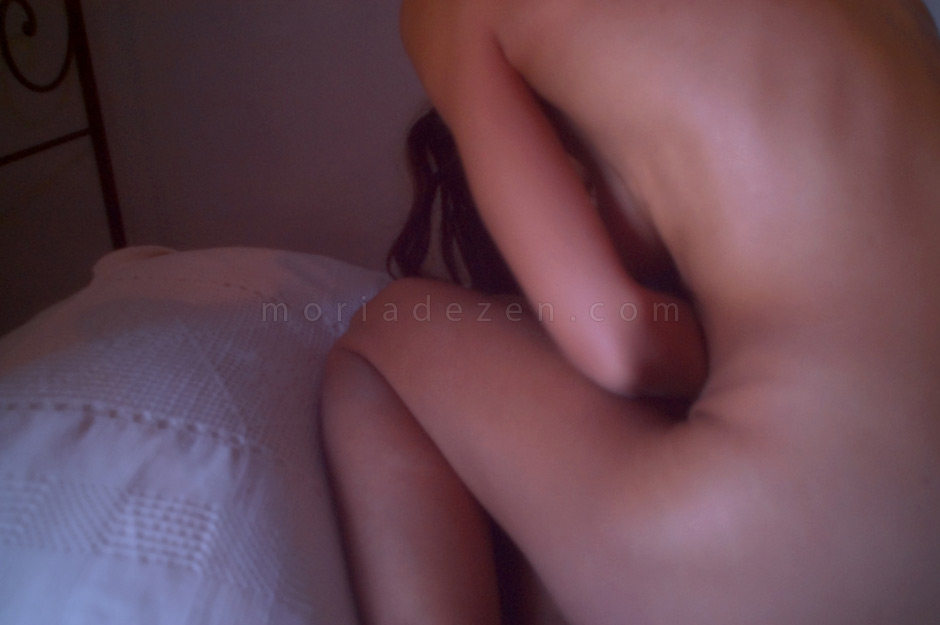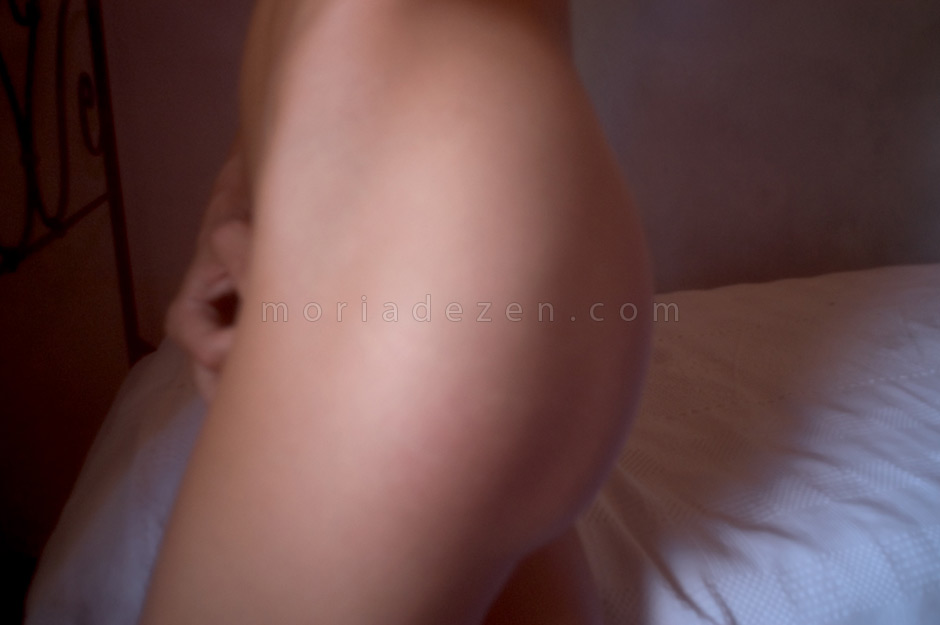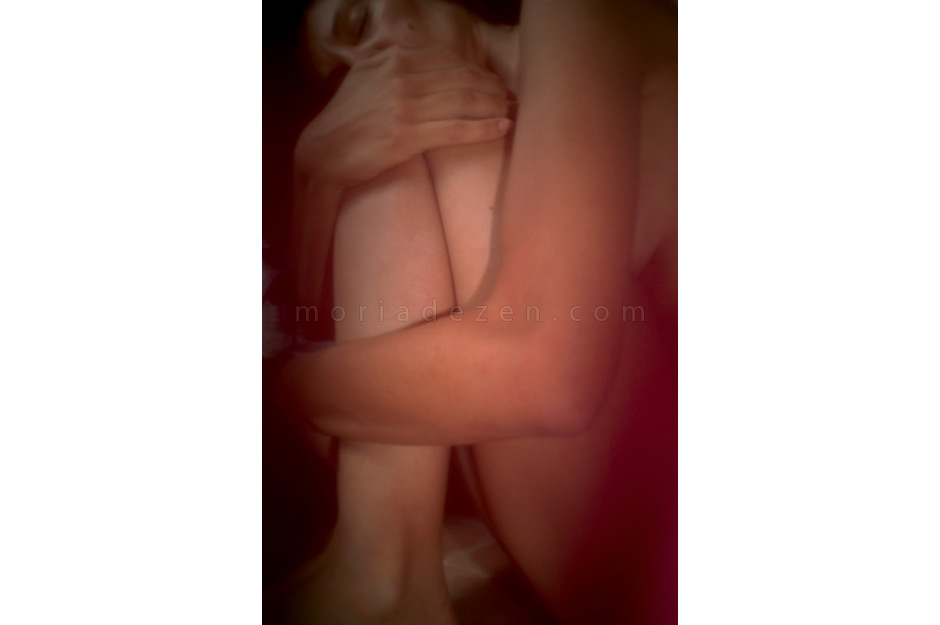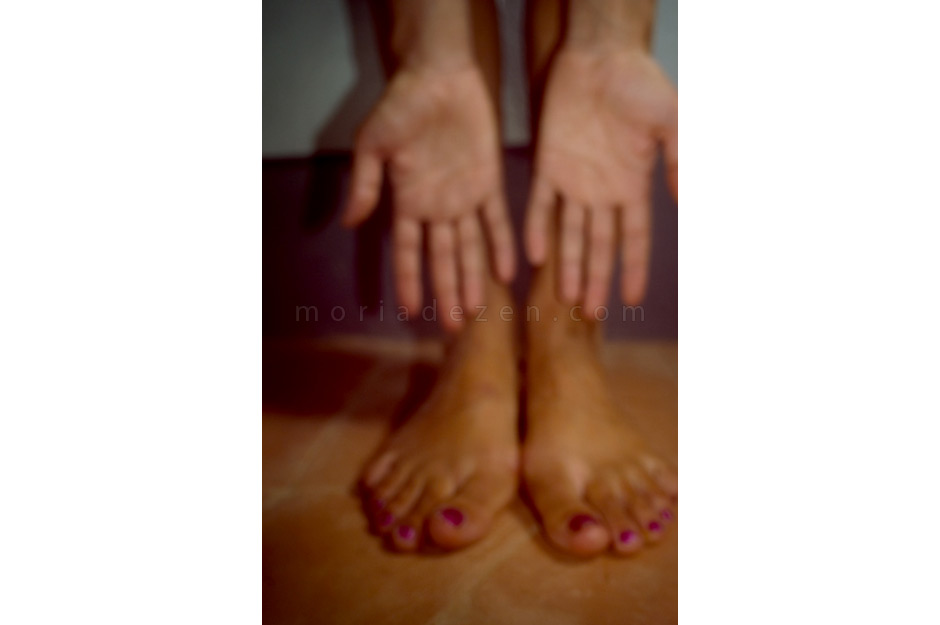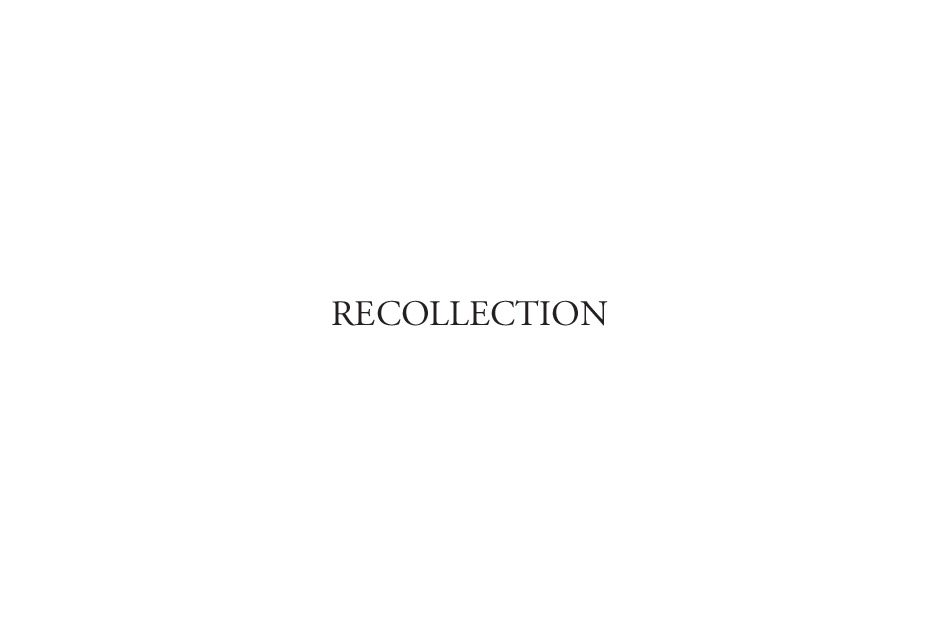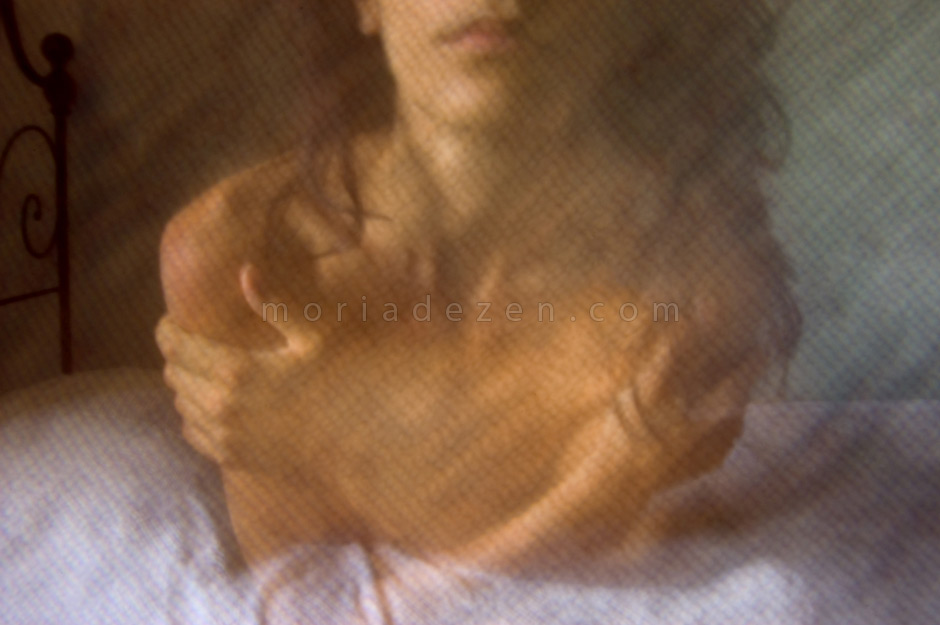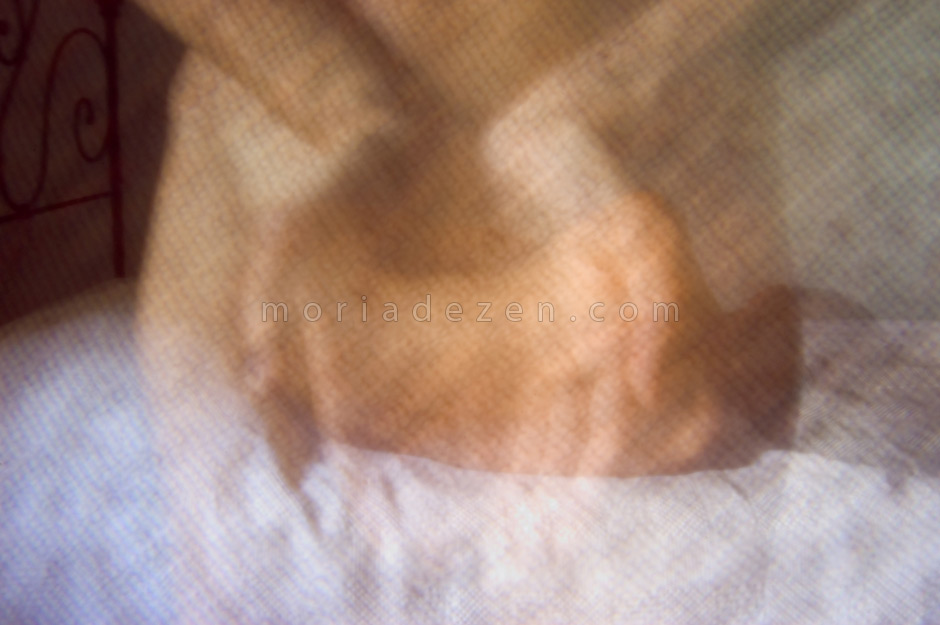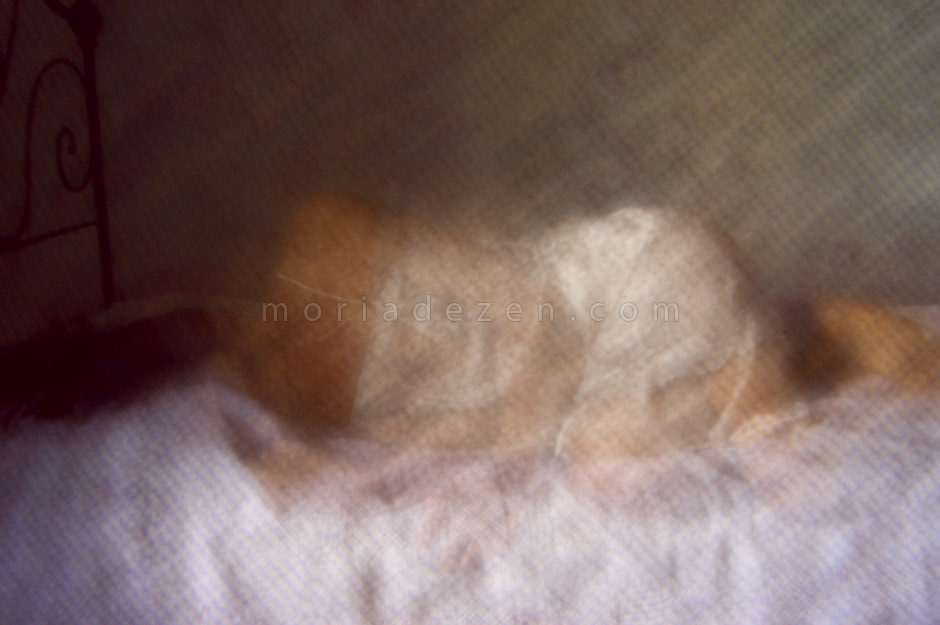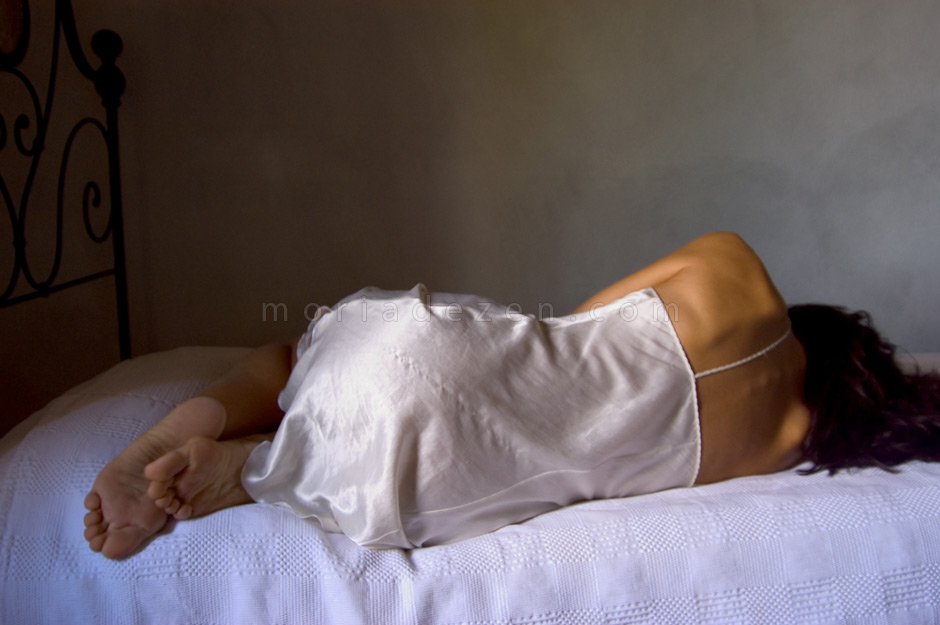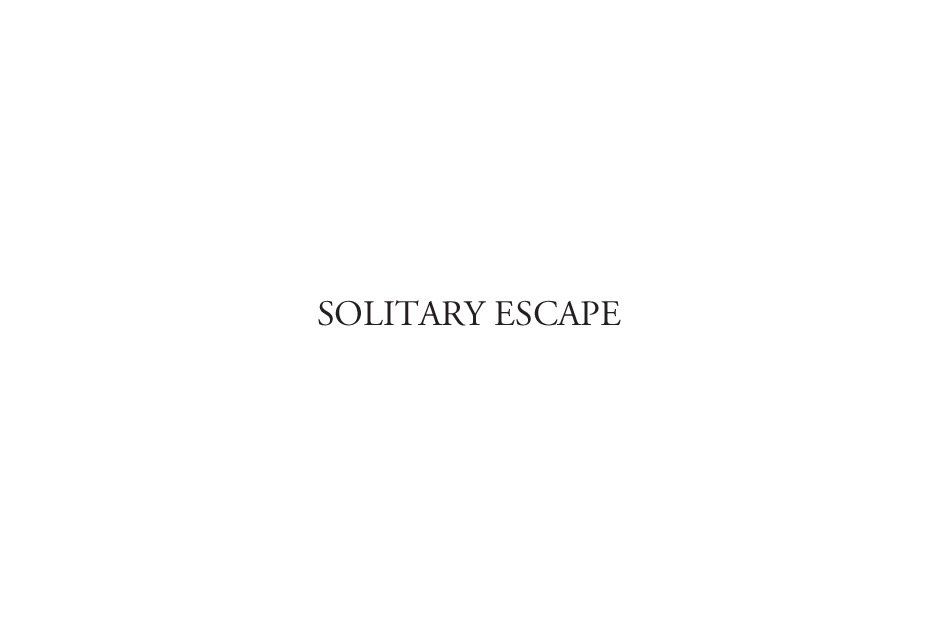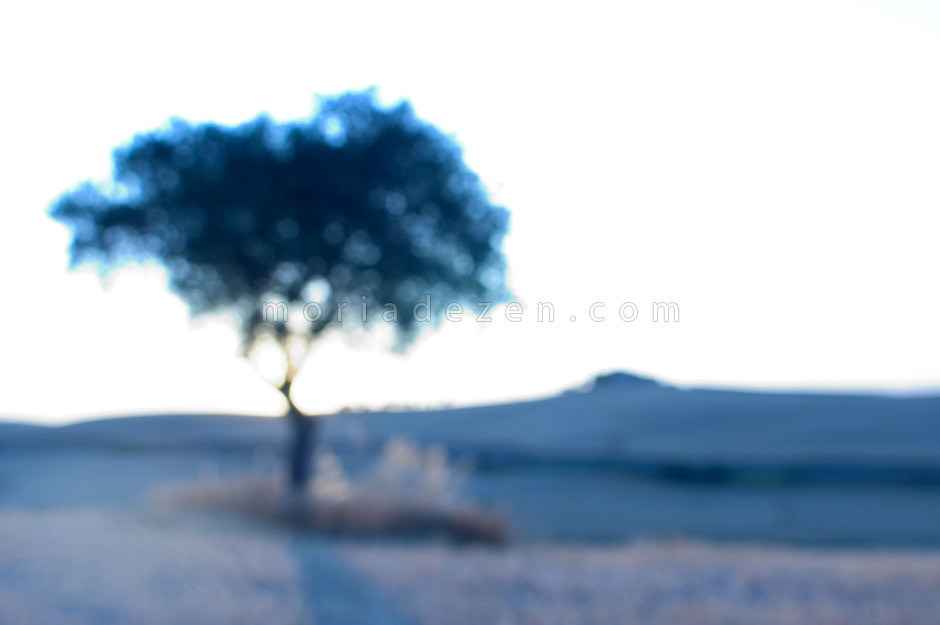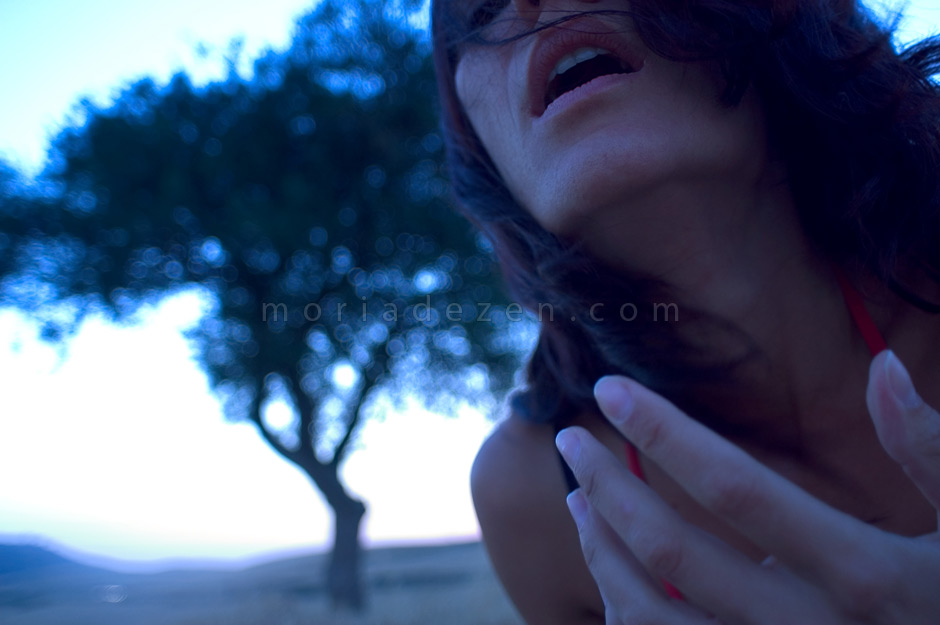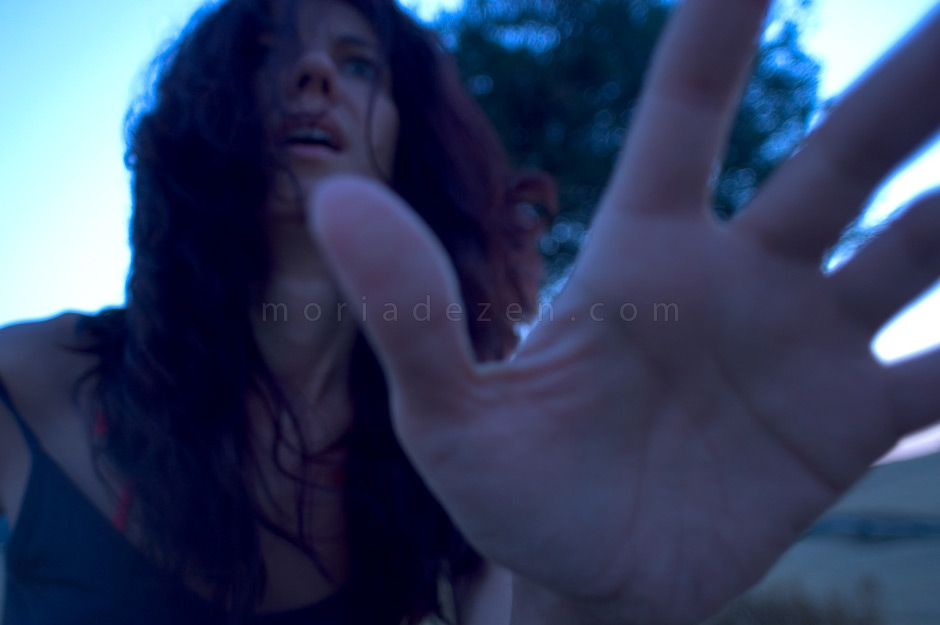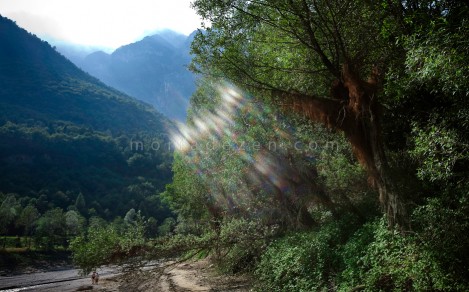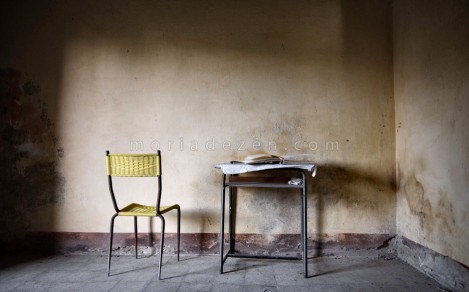English
“The images of Evoke, arised spontaneously and without premeditation from within, are like short sequences of dreams which narrate, in the language of dreams, inner, blurred and elusive visions. Driven more from a need than by a specific intent, in these photos I investigated myself. By finding the common thread of those past events recorded in my epidermal memory, through the self-portrait I created a heard and controversial inner visual diary”.
The research is conducted with care and balance, through self-portraiture. The story has a precise articulation – true and real changes of scene especially in passages of the color tonal values and in the compositions – that allows the viewer to read and interpret the characters, the spaces, the colors, the signs, the posture and the body language, the succession of events, to enter deeply into the author’s intimacy, the Lady of Dreams. There, where the most personal “things” are collected, the ones that will remain in the memory’s archive and will never be possible to see. Like much part of Evoke. From the images – dream sequences that narrate, in the language of dreams, inner vision blurred and elusive recalled to give visibility to those particular universal emotions that dwell in the human soul – shines strong, etched and carved by time and life, the feeling that surrounds and protects the images which point, on different literary plans, to the verses of Pablo Neruda and Jacques Prévert, two sensibilities whose extraordinary expressive language live and feed of love and passion. Evoke is a book of visual stimulation but it is also a diary of love, in the full meaning of the term, to review it, from time to time. It should be given only in vision and never sold because it is sacred, as its content. De Zen photographs for job requirements, but often, as in Evoke, even for herself. She investigates to investigate herself. She studies to study herself. The Veneto artist does not give up working for herself when she feels the need to do so or matures intimate needs related to the expression of her “Self”. Evoke is one of these. All dedicated to the world of women, the essence of feminine charm. A deep study into the meanings, lived in its contents, structured on the edge of a personal dimension, with a autobiographical outline that, nuanced, runs away on the visible horizon from where it does not emerges a logical order nor an accomplished sense.
Fausto Raschiatore – Profili d’Autore/Fotologie, 2012
Dreamers
Moria De Zen has dedicated her life to images. (…) Moria may be a photographer by trade but, not unusually in her profession, she sometimes sets aside the requirements of her clients in order to satisfy her own intimate and intimistic artistic needs. She’s blessed with charming, refined ways and shares with many other contemporary female artists an almost obsessive penchant for self-reference, never, however, overflowing into narcissism.
Moria De Zen generates contrasting sensations. She has an aristocratic air which she applies thoughtfully in an imperceptible tapestry of graceful, almost New Age thoughts (…).
However, once you get to know her better you start to suspect that New Age has little or nothing to do with her and what you’re seeing is simply exquisite feminine sensibility. Certainly in her pictures Moria is able to present gracefulness without it ever seeming overly affected. Yet paradoxically her aesthetic grace, this formal elegance is somehow unable to create “calming” feelings, generating instead visual explosions which seem to derive enjoyment from the voices of dreams or the breathlessness of nightmares, giving rise to subtle fears and indefinable disturbances.
When Moria showed me her preparations for the project behind this exhibition in the summer of 2005 I immediately saw an affinity with Director David Cronenberg, and not simply because every sequence of photos resembles a short film. It is the atmosphere and tone of the stories which makes them similar. Visitors to the exhibition can chose to accept or not this comparison and take their understanding of the images which make up Evoke to another level (…).
Roberto Roda, Curator of the exhibition
Evoke Catalogue is on sale. Order at info@moriadezen.com
Italian
“Le immagini di Evoke, scaturite spontaneamente e senza premeditazione, si presentano come brevi sequenze oniriche e narrano, col linguaggio dei sogni, visioni interiori indistinte, sfocate e sfuggenti. Mossa più da un bisogno che da un preciso intento, in queste foto ho indagato me stessa e, ritrovando il fil rouge di quegli eventi passati registrati nella mia memoria epidermica, attraverso l’autoritratto ne è nato un diario visivo interiore sentito e controverso”.
La ricerca è condotta con attenzione ed equilibrio, attraverso l’autoritratto. La storia ha una precisa articolazione – veri e propri passaggi di scena soprattutto nei valori tonali dei cromatismi e nelle composizioni – che permette al fruitore di leggere e interpretare i protagonisti, gli spazi, i colori, i segni, le posture e il linguaggio dei corpi, il succedersi degli eventi, per penetrare nell’intimo dell’autrice, la Signora dei Sogni. Lì dove sono raccolte le “cose” più personali, quelle che rimarranno nell’archivio della memoria e che non sarà mai possibile vedere. Come molta parte di Evoke. Dalle immagini – sequenze oniriche che narrano, col linguaggio dei sogni, visioni interiori indistinte e sfuggenti rievocati per dare visibilità a quelle particolari emozioni universali che albergano nell’animo umano – traspare forte, inciso dal tempo e scolpito nel suo vissuto, il sentimento che le avvolge e le protegge e che rimanda, su piani letterari differenti, ai versi di Pablo Neruda e di Jacques Prévert, due sensibilità straordinarie i cui linguaggi espressivi vivono e si nutrono d’amore e di passione. Evoke è un libro di stimolazioni visive ma è anche un diario d’amore nel senso compiuto del termine, da rivedere, di tanto in tanto. Va dato solo in visione e mai ceduto perché è sacro, come il suo contenuto. De Zen fotografa per esigenze di lavoro, ma di frequente, come in Evoke, anche per sè. Indaga per indagarsi. Studia per studiarsi. L’artista veneta non rinuncia a lavorare per se stessa quando sente il bisogno di farlo o maturano intime esigenze espressive legate al proprio “Io”. Evoke è una di queste. Tutta dedicata al mondo delle donne, all’essenza del fascino femminile. Uno studio profondo nei significati, vissuto nei contenuti, strutturato sul filo di una dimensione personale, con un tratteggio autobiografico che, sfumato, si allontana sull’orizzonte visibile da cui non traspare un ordine logico né un senso compiuto.
Fausto Raschiatore – Profili d’Autore/Fotologie, 2012
Dreamers
(…) Fotografa Moria lo è per esigenze di lavoro ma, non di rado come in questo caso, dimentica le esigenze della committenza per soddisfare solo intime e intimistiche esigenze artistiche. Tecnicamente molto preparata, dotata di modi fascinosi e per certi versi persino snob, condivide con molte altre donne artiste contemporanee una propensione quasi ossessiva verso una autoreferenzialità che mai, tuttavia, sconfina nel narcisismo. Moria De Zen è in grado di suscitare sensazioni contrastanti. Possiede un’aura aristocratica dispiegata cautamente su una trama impercettibile di pensieri aggraziati, apparentemente new age (…).
Conoscendola meglio viene il sospetto che la new age c’entri poco o nulla e si tratti, invece, solamente di squisita sensibilità femminile. Di certo nelle sue immagini Moria riesce a dipanare una grazia che non è mai effluvio lezioso. Paradossalmente questa grazia estetica, questa eleganza formale sembra incapace di generare sentimenti “quieti”, piuttosto propensa a farsi pericoloso innesto di esplosioni visuali, che traggono godimento dalle voci del sogno o dall’ansimare dell’incubo, generando sottili apprensioni, indefinibili turbamenti.
Quando Moria, nell’estate del 2005, mi ha mostrato, ancora in via di perfezionamento, il progetto di questa mostra, ho immediatamente pensato ad una affinità elettiva con il regista David Cronenberg e non certo perché ogni sequenza fotografica dell’artista veneta è in fondo un piccolo film. È il clima e il tono dei racconti ciò che idealmente li accomuna. Il visitatore di questa mostra potrà far tesoro o meno di questo suggerimento e portare a esiti ulteriori la lettura delle immagini che compongono Evoke. (…)
Roberto Roda, Curatore della mostra
Il catalogo Evoke è in vendita. Ordinalo scrivendo a info@moriadezen.com


